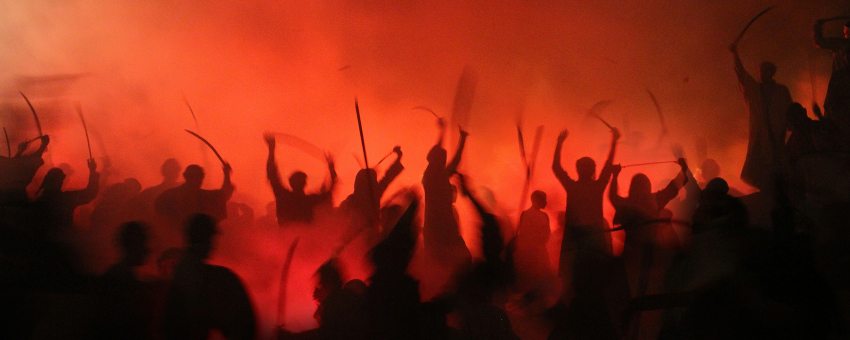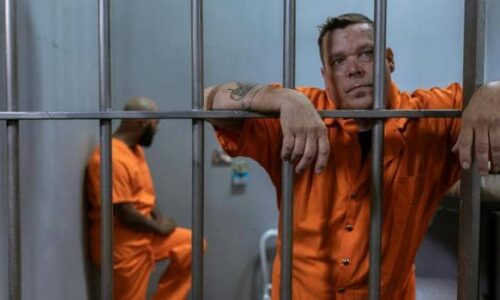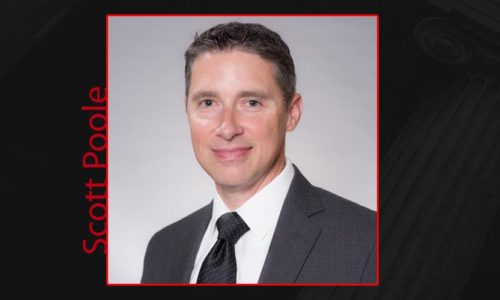Riot Laws in Georgia

Inciting a Riot
Peaceful Protest vs. Unlawful Conduct
Learn how to exercise your Right to Peaceful Assembly and not give cause to be arrested for criminal conduct.
The distinction between a riot and peaceful demonstration should be rather obvious. This article is an introduction to the dark side of a demonstration – criminal rioting.
The Founding Fathers, in the United States Constitution, added a brilliant component protecting the Right of the People to peacefully assemble. Found in the First Amendment to the United States Constitution are the words which restrict Congress from passing legislation that would block the right of the people to assemble peaceably. Going a step further, the Fourteenth Amendment to our Constitution applies this restriction to state governments.
While these elements will serve the interests of U.S. citizens, the Right to peaceful assembly is not absolute. Per the Library of Congress website, “The Supreme Court of the United States has held that the First Amendment protects the right to conduct a peaceful public assembly. The right to assemble is not, however, absolute. Government officials cannot simply prohibit a public assembly in their own discretion, but the government can impose restrictions on the time, place, and manner of peaceful assembly, provided that constitutional safeguards are met. Time, place, and manner restrictions are permissible so long as they “are justified without reference to the content of the regulated speech, . . . are narrowly tailored to serve a significant governmental interest, and . . . leave open ample alternative channels for communication of the information.”
Such time, place, and manner restrictions can take the form of requirements to obtain a permit for an assembly. The Supreme Court has held that it is constitutionally permissible for the government to require that a permit for an assembly be obtained in advance. The government can also make special regulations that impose additional requirements for assemblies that take place near major public events.”1
In many jurisdictions,a Permit must be acquired for a public assembly (demonstration, protest, festival, concert, etc.) which specifies date(s), times(s), etc.. For very large assemblies, a jurisdiction may have special requirements such as trained security, portable toilets, etc.
Where a Demonstration Becomes Unlawful
The First Amendment does not provide the right to conduct an assembly at which there is a clear and present danger of riot, disorder, or interference with traffic on public streets, or other immediate threat to public safety or order.
An article on DifferenceBetween.net presents this description of Riot vs. Protest, “A riot is an expression of dissatisfaction characterized by violence, vandalism, theft as well as the destruction of public or private property, and is a crime punishable by law. On the other hand, a protest is a peaceful public display of disapproval or displeasure carried by chanting and marching in public and is a human right. To avoid the destruction of property and the violence associated with riots, people need to hold peaceful protests where they feel dissatisfied.”2
Civil Disturbances and Law Enforcement
Local police deal with most riot situations, however; a mayor may request support from the County Sheriff’s Department or State Police.
National Guard troops may be called up by a governor to squelch large-scale civil unrest which poses a great and lengthy threat to public safety
When riots impact any federal property the federal government can send in federal agents to deal with rioters. This includes law enforcement personnel with the FBI, ATF, ICE, and other agencies.
What Constitutes a Riot?
Rioting, and any similar form of uncontrolled protests, are almost always viewd as criminal. This is especially true if there are instances of violence, vandalism, arson, looting and destruction of public or private property.
In 2020, rioting is associated with extremists such as Antifa, Black Lives Matter, Boogaloo Bois, gangs, and loose-knit mobs. An individual who has the intent of only peacefully protesting may get arrested if they are perceived to be part of any group of people committing crimes.
Inciting a Riot & Conspiracy to Riot
Aside from the criminal charge of rioting exists other related crimes that of which a person may be accused. Per the FindLaw website, other related charges include
“Incitement to riot is when a person encourages others to commit a breach of the peace without necessarily acting themselves. This may involve statements, signs, or conduct intended to lead others to riot.”3
“Conspiracy to riot involves planning acts that, if undertaken, would result in a breach of the peace. However, conspiracy convictions usually require the defendant to have undertaken an overt act in furtherance of their plan.”3
Common Charges From Rioting
Rioting itself is a crime, however; the frenzy of a riot often leads participants to be arrested for other charges. Some common arrest charges when rioting include:
- Looting
- Destruction of Public Property
- Destruction of Private Property
- Criminal Trespass
- Arson
- Assault With a Deadly Waepon
- Aggravated Assault
- Obstructing a Police Officer
- Resisting Arrest
- Brandishing a Weapon
- Carrying a Concealed Weapon (without a Permit)
- Possession of a Firearm During the Commission of a Felony
- Probation Violation
Prosecution, Penalties and Sentences
While some arrests for rioting can be dismissed or reduced to disorderly conduct, some lead to serious sentences. An arrest for rioting with additional felony charges can result in sentences for 20 years or more.
Federal felony charges for rioting can be levied for attacks on or damage to federal property, or federal law enforcement officers. Federal charges can be brought against you for traveling to riot, organize a riot, or assist in a riot.
Federal Rioting Crimes
The following is quoted from 18 U.S. Code § 2101.Riots
- (a)Whoever travels in interstate or foreign commerce or uses any facility of interstate or foreign commerce, including, but not limited to, the mail, telegraph, telephone, radio, or television, with intent—
- (1)to incite a riot; or
- (2)to organize, promote, encourage, participate in, or carry on a riot; or
- (3)to commit any act of violence in furtherance of a riot; or
- (4)to aid or abet any person in inciting or participating in or carrying on a riot or committing any act of violence in furtherance of a riot; and who either during the course of any such travel or use or thereafter performs or attempts to perform any other overt act for any purpose specified in subparagraph (A), (B), (C), or (D) of this paragraph
Shall be fined under this title, or imprisoned not more than five years, or both.
- (b)In any prosecution under this section, proof that a defendant engaged or attempted to engage in one or more of the overt acts described in subparagraph (A), (B), (C), or (D) of paragraph (1) of subsection (a) [2] and (1) has traveled in interstate or foreign commerce, or (2) has use of or used any facility of interstate or foreign commerce, including but not limited to, mail, telegraph, telephone, radio, or television, to communicate with or broadcast to any person or group of persons prior to such overt acts, such travel or use shall be admissible proof to establish that such defendant traveled in or used such facility of interstate or foreign commerce.
- (c)A judgment of conviction or acquittal on the merits under the laws of any State shall be a bar to any prosecution hereunder for the same act or acts.
- (d)Whenever, in the opinion of the Attorney General or of the appropriate officer of the Department of Justice charged by law or under the instructions of the Attorney General with authority to act, any person shall have violated this chapter, the Department shall proceed as speedily as possible with the prosecution of such person hereunder and with any appeal which may lie from any decision adverse to the Government resulting from such prosecution.
- (e)Nothing contained in this section shall be construed to make it unlawful for any person to travel in, or use any facility of, interstate or foreign commerce for the purpose of pursuing the legitimate objectives of organized labor, through orderly and lawful means.
- (f)Nothing in this section shall be construed as indicating an intent on the part of Congress to prevent any State, any possession or Commonwealth of the United States, or the District of Columbia, from exercising jurisdiction over any offense over which it would have jurisdiction in the absence of this section; nor shall anything in this section be construed as depriving State and local law enforcement authorities of responsibility for prosecuting acts that may be violations of this section and that are violations of State and local law.
Georgia Rioting Crimes
The following is quoted from Georgia Code § 16-11-30 – Riot
- (a) Any two or more persons who shall do an unlawful act of violence or any other act in a violent and tumultuous manner commit the offense of riot.
- (b) Any persons who violate subsection (a) of this Code section are guilty of a misdemeanor.
The following is quoted from Georgia Code § 16-11-31 – Inciting to Riot
- (a) A person who with intent to riot does an act or engages in conduct which urges, counsels, or advises others to riot, at a time and place and under circumstances which produce a clear and present danger of a riot, commits the offense of inciting to riot.
- (b) Any person who violates subsection (a) of this Code section is guilty of a misdemeanor.
If you have been arrested for rioting, inciting, conspiracy or other charges we encourage you to call our law firm. Our rioting defense lawyers can answer your questions, explain your predicament, and show you how to get started with your defense.
FOOTNOTES
- 1 Various, “Right to Peaceful Assembly: United States”, July 24, 2020, Available from Library of Congress
- 2 Tabitha Njogu, “Difference Between Riot and Protest”, July 14, 2020, Available from DifferenceBetween.net
- 3 Findlaw Staff, “Rioting and Inciting to Riot”, June 2, 2020, Available from Findlaw
- 4 Various, “United States Code § 2101. Riots”, August 14, 2020, Available from GovRegs.com
- 5 Various, “Georgia Code § 16-11-30 – Riot”, August 1, 2020, Available from Justia
- 6 Various, “Georgia Code § 16-11-31 – Inciting to Riot”, August 1, 2020, Available from Justia
Photo by Hasan Almasi on Unsplash


